Filter by
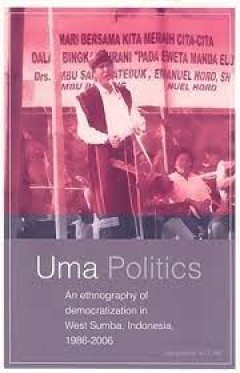
Uma politics; An ethnography of democratization in West Sumba, Indonesia, 198…
Democracy cannot be implemented overnight. Democratization is an often unpredictable process. This book concentrates on that political transformation in one of Indonesia’s most ‘traditional’ islands, Sumba. Why does democratization create such great opportunities for local politicians with their private agenda’s? Why does regional autonomy, as part of the national democratization progra…
- Edition
- -
- ISBN/ISSN
- 9789004253926
- Collation
- -
- Series Title
- -
- Call Number
- -

A Gentleman's Word The Legacy of Subhas Chandra Bose in Southeast Asia
The great Indian nationalist leader Subhas Chandra Bose arrived in Singapore in 1943 to revitalize the Indian National Army (INA). Taking the opportunity of the Japanese occupation of parts of Southeast Asia, he launched armed struggle against British colonial rule in India. Two years later, that attempt failed at the eastern gates of India. Yet, it was a temporary failure because the INA helpe…
- Edition
- -
- ISBN/ISSN
- 9789814379793
- Collation
- -
- Series Title
- Books and Monographs
- Call Number
- -

A General View of the Rural Economy of England, 1538–1840
In rural England prior to the Industrial Revolution people generally married when they were not busy with work. Parish registers of marriage therefore form an important and innovative source for the study of economic change in this period. Dr Kussmaul employs marriage dates to identify three main patterns of work and risk (arable, pastoral and rural industrial) and more importantly to show the …
- Edition
- -
- ISBN/ISSN
- 9780511560675
- Collation
- -
- Series Title
- Cambridge Studies in Population, Economy and Society in Past Time
- Call Number
- -
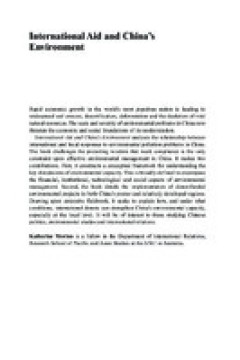
International Aid and China's Environment
Rapid economic growth in the world's most populous nation is leading to widespread soil erosion, desertification, deforestation and the depletion of vital natural resources. The scale and severity of environmental problems in China now threaten the economic and social foundations of its modernization. Using case studies, Morton analyzes the relationship between international and local responses…
- Edition
- -
- ISBN/ISSN
- 9781134183111
- Collation
- -
- Series Title
- -
- Call Number
- -

Interorganizational Diffusion in International Relations Regional Institutio…
How and under what conditions does the European Union (EU) shape processes of institution building in other regional organizations? This book develops and tests a theory of interorganizational diffusion in international relations that explains how successful pioneer organizations shape institutional choices in other organizations by affecting the institutional preferences and bargaining strateg…
- Edition
- -
- ISBN/ISSN
- 9780198823827
- Collation
- -
- Series Title
- -
- Call Number
- -
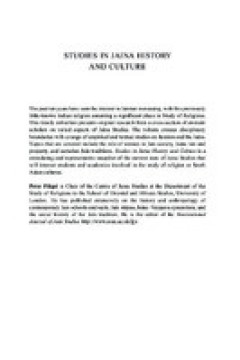
Studies in Jaina History and Culture
The last ten years have seen interest in Jainism increasing, with this previously little-known Indian religion assuming a significant place in religious studies. Studies in Jaina History and Culture breaks new ground by investigating the doctrinal differences and debates amongst the Jains rather than presenting Jainism as a seamless whole whose doctrinal core has remained virtually unchanged th…
- Edition
- -
- ISBN/ISSN
- 9781134235476
- Collation
- -
- Series Title
- -
- Call Number
- -

A Formula Book of English Official Historical Documents
This 1909 work forms a second supplement to Hall's Studies in English Official Historical Documents. It gives examples of a wide range of English ministerial and judicial documents from the ninth to the seventeenth centuries. These are arranged according to type and purpose, the majority in Latin. The intention is to assist the user of such archival materials, by familiarising them with the for…
- Edition
- Hubert Hall
- ISBN/ISSN
- 9780511696923
- Collation
- -
- Series Title
- Cambridge Library Collection - Medieval History
- Call Number
- -
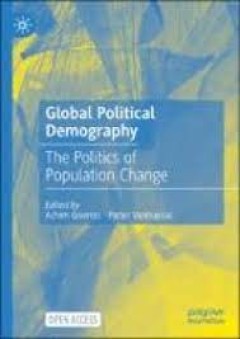
Global Political Demography The Politics of Population Change
This open access book draws the big picture of how population change interplays with politics across the world from 1990 to 2040. Leading social scientists from a wide range of disciplines discuss, for the first time, all major political and policy aspects of population change as they play out differently in each major world region: North and South America; Sub-Saharan Africa and the MENA regio…
- Edition
- -
- ISBN/ISSN
- 9783030730659
- Collation
- -
- Series Title
- -
- Call Number
- -

Democratic inclusion Rainer Bauböck in dialogue
This book addresses the major theoretical and practical issues of the forms of citizenship and access to citizenship in different types of polity, and the specification and justification of rights of non-citizen immigrants as well as non-resident citizens. It also addresses the conditions under which norms governing citizenship can legitimately vary. The book discusses the principles of includi…
- Edition
- -
- ISBN/ISSN
- 9781526105257
- Collation
- -
- Series Title
- -
- Call Number
- -
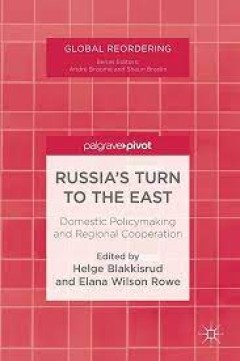
Russia's Turn to the East Domestic Policymaking and Regional Cooperation
Development studies; Russia; Far East; International affairs; Energy; Shanghai cooperation organization; Economic development; Security policy; Multilateral organizations; Diplomacy; Regionalism; Russian–European relations; Russia’s “pivot to the East”; Annexation of Crimea; Regional politics; Eurasia; Ukraine; Sanctions regime; Foreign policy
- Edition
- -
- ISBN/ISSN
- 9783319697901
- Collation
- -
- Series Title
- -
- Call Number
- -
 Computer Science, Information & General Works
Computer Science, Information & General Works  Philosophy & Psychology
Philosophy & Psychology  Religion
Religion  Social Sciences
Social Sciences  Language
Language  Pure Science
Pure Science  Applied Sciences
Applied Sciences  Art & Recreation
Art & Recreation  Literature
Literature  History & Geography
History & Geography